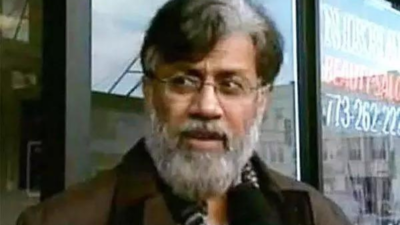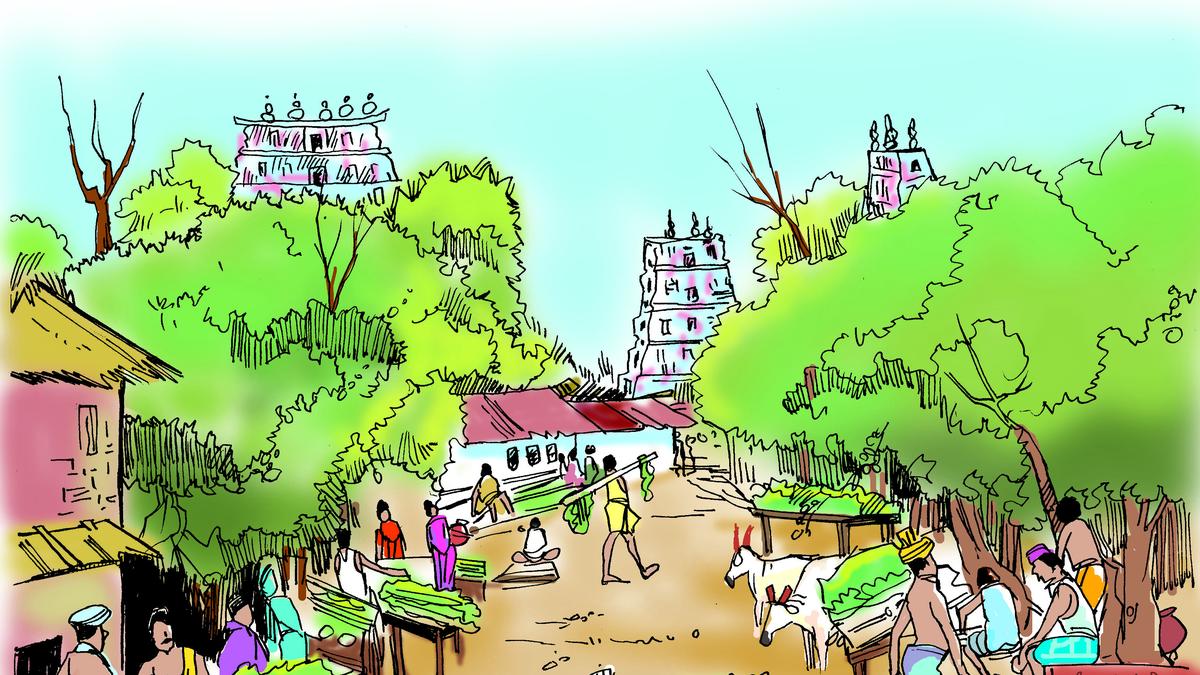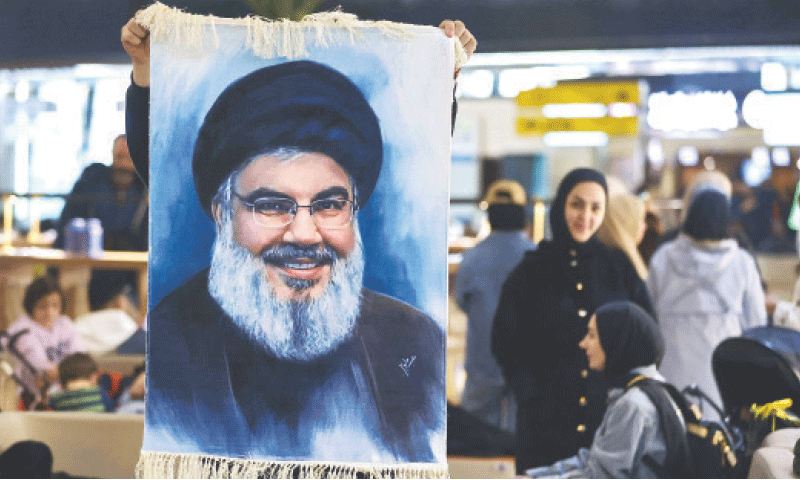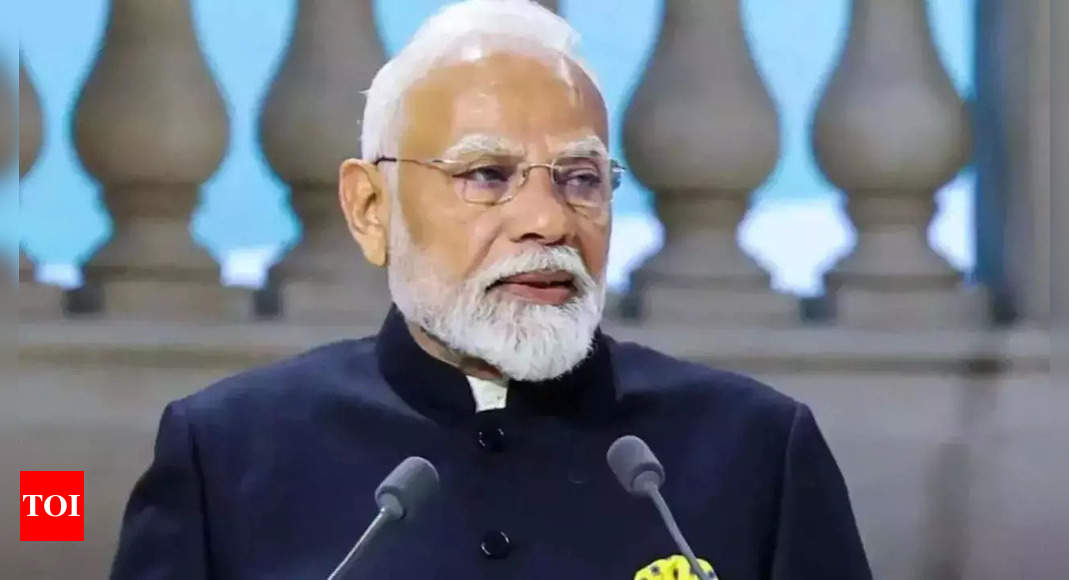Trump announces extradition of 26/11 accused Tahawwur Rana: What it means for India | India News

NEW DELHI: US President Donald Trump has approved the extradition of Tahawwur Rana, a key accused in the 2008 Mumbai terror attacks. After meeting with Prime Minister Narendra Modi at a joint press conference at the White House, Trump confirmed the decision and hinted at more extraditions in the future.
“We are giving a very violent man (Tahawwur Rana) back to India immediately. There are more to follow because we have quite a few requests. We work with India on crime, and we want to make things better for India,” Trump said.
This decision comes after the US Supreme Court rejected Rana’s final appeal on January 21, removing the last legal hurdle for his extradition.
On the timeframe of Rana’s extradited, foreign secretary Vikram Misri said: “We are working on the logistics of his surrender and extradition to India. There are a few final steps to be completed. The two sides are in touch on this particular issue.”
The India-US joint statement notes that PM Modi and Trump reaffirmed that the global scourge of terrorism must be fought and terrorist safe havens eliminated from every corner of the world.
“They committed to strengthen cooperation against terrorist threats from groups, including Al-Qaeda, ISIS, Jaish-e Mohammad, and Lashkar-e-Tayyiba in order to prevent heinous acts like the attacks in Mumbai on 26/11 and the Abbey Gate bombing in Afghanistan on August 26, 2021,” the joint statement said.
“Recognising a shared desire to bring to justice those who would harm our citizens, the US announced that the extradition to India of Tahawwur Rana has been approved,” it said.
Who is Tahawwur Rana?
Rana, a Pakistani-origin Canadian citizen, was convicted in the US for supporting the banned Lashkar-e-Taiba (LeT) and is wanted in India for his alleged role in facilitating the Mumbai attacks that killed over 174 people. His extradition had been a long-pending demand from India.
Rana’s role in the 26/11 attack involves helping his friend David Coleman Headley alias Daood Gilani, a US citizen who was born to an American mother and a Pakistani father. Headley was arrested by the US authorities in October 2009.
Rana was allegedly not only aware of Headley’s links to the Pakistan-based banned terror organisation LeT, he also actively helped Headley. Rana provided Headley with a fake identity that helped the latter visit India and identify targets for LeT’s 2008 attack.
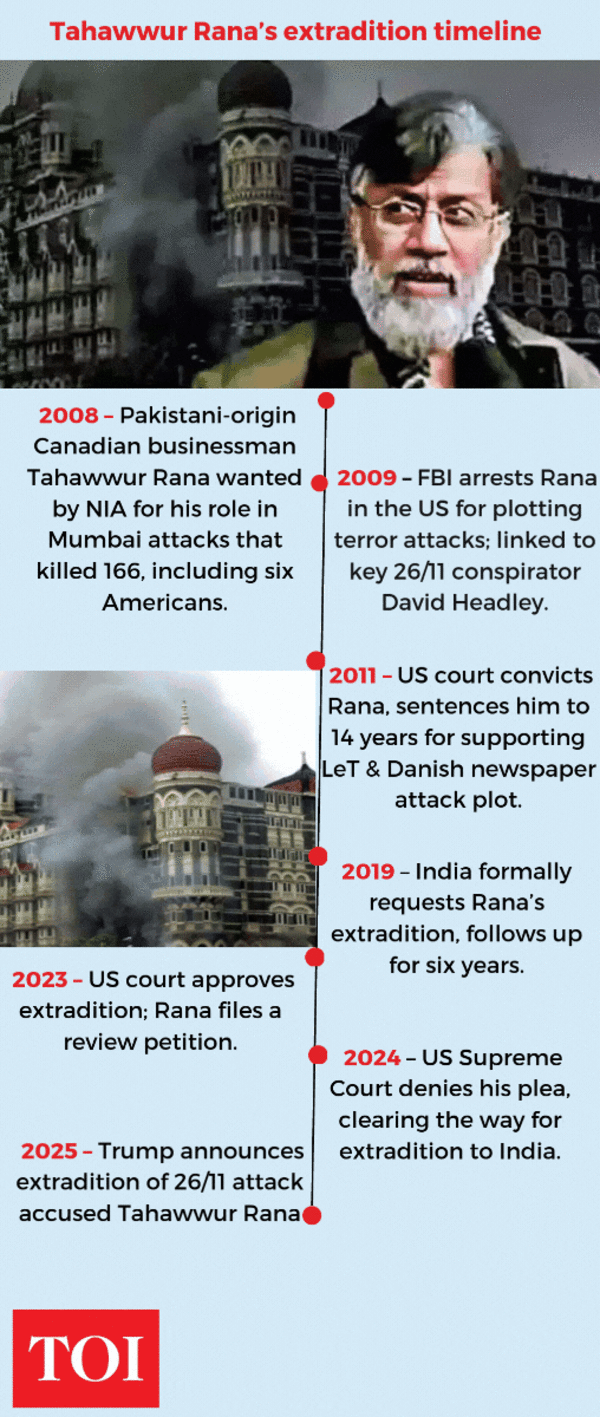
‘Every 3rd fugitive, terrorist wanted by India hiding in US’
MoS Nityanand Rai had informed Lok Sabha in December that 65 of the 178 pending extradition requests by Indian investigative agencies were currently under US government consideration. Despite a treaty signed between the two nations in 1997, only 11 requests were honored between 2002 and 2018.
Among the unfulfilled requests is the extradition of David Coleman Headley, the Lashkar operative and key accused in the 26/11 Mumbai terror attacks.
Citing data from the Ministry of External Affairs, Rai stated that in the past five years, India sought the extradition of several fugitive criminals from the US, with only 23 requests approved.
Anmol Bishnoi, Lawrence Bishnoi’s younger brother, was arrested in the US last year in November. He is suspected of planning terror attacks and targeted assassinations in film and business sectors. The National Investigation Agency (NIA) had listed him as one of its most wanted fugitives and announced a Rs 10 lakh reward for his capture.
Trump message on Khalistani elements in US
During the joint press conference, Trump was asked about Khalistanis in the US. While the US president did not give a direct reply, he said India and the US worked together on crime.
On a question related to Washington’s recent accusations of India’s involvement in a foiled assassination plot against Khalistani terrorist Gurpatwant Singh Pannun, Trump said India didn’t have a good relationship with the Biden administration. “Very inappropriate things happened between them,” Trump said before moving on to the announcement of Tahawwur Rana’s extradition.
On January 15, a high-powered Indian inquiry committee had also submitted its report on the activities of organised criminal groups and terrorist organizations impacting both India and the US. The probe was initiated following US allegations regarding the attempted killing of Gurpatwant Singh Pannun, who faces 104 cases across India.
In an official statement, the Ministry of Home Affairs had confirmed that the committee, which worked in full cooperation with US authorities, recommended legal action against an individual with known criminal ties. While the ministry did not disclose the person’s identity, it assured that swift action would follow.


